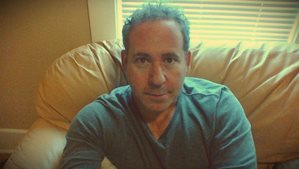
I have been helping academics and others on their writing and writing productivity for over twenty years (and over ten years as a coach--time flies!!). While I have many technical tips and tools that explore with folks, much of what I do is helping scholars maximize their psychosocial resources and resilience. In other words, I help people with their mindset by exploring and transforming their internalized barriers. Some of these barriers stem from childhood traumas and problems, some from the painful process of completing their dissertations,often from oppression, and sometimes from habits and practices that at one point served them well but no longer do.
One of these habits, that many attribute to their success, is an over-attachment to establishing, and constantly tinkering with, outcome goals. I have seen it time and time again--a scholar sets goals for their week, does not make their goals, feels bad about this, and either tinkers with their goals or abandons their writing altogether, sinking further into self-downing, and at worse despair.
The solution? Let go of obsessive goal setting and focus on developing healthy, sustainable processes. These include optimizing session length. writing habits and rituals, self talk, mindfulness, entry points, tools for managing anxiety and self downing, understanding the function of various modes of writing, the use of accountability structure, and many others! Optimizing your processes will paradoxically lead to better outcomes than being preoccupied
with outcomes! It will also make you happier!
This is a hard shift for many to make!
When scholars are overly focused on their outcome goals, it is hard for them to imagine that somehow their work will get finished if they don't constantly look at, evaluate, explore, and recalibrate their goals. However, many scholars become overwhelmed with the constant and heavy emotional burden of these goals, and feel ashamed when they are even a day or two behind. Goals are important, but they are useless when they are not linked to daily processes that lead to their fulfillment. Staying in process helps you be productive without nearly the psychological toll.
ABOUT THE AUTHOR

Rich Furman, MFA, MSW, PhD, provides coaching to scholars, leaders, creatives and entrepreneurs.
Richfurmancoaching.com
Rich is full professor of social work at the University of Washington, Tacoma. Rich has 25 years of experience as a clinical social worker, organizational leader, therapist, coach and scholar. He has held leadership positions in higher education and non-profit organizations and was the founding director of one of the largest community based, children's wraparound programs in the United States. He is the author of over 15 books and 120 peer-reviewed articles and recognized as one of the international leaders in expressive, arts-based qualitative methodologies. Rich provides strengths-based, insight-oriented coaching for scholars and leaders at all stages of their careers. Rich has conducted workshops on writing and publishing throughout Asia, Latin America, and Europe. In 2019 he crossed an item off his bucket list by completing a Master of Fine Arts in Creative Nonfiction from Queens University of Charlotte's Latin America MFA program.
